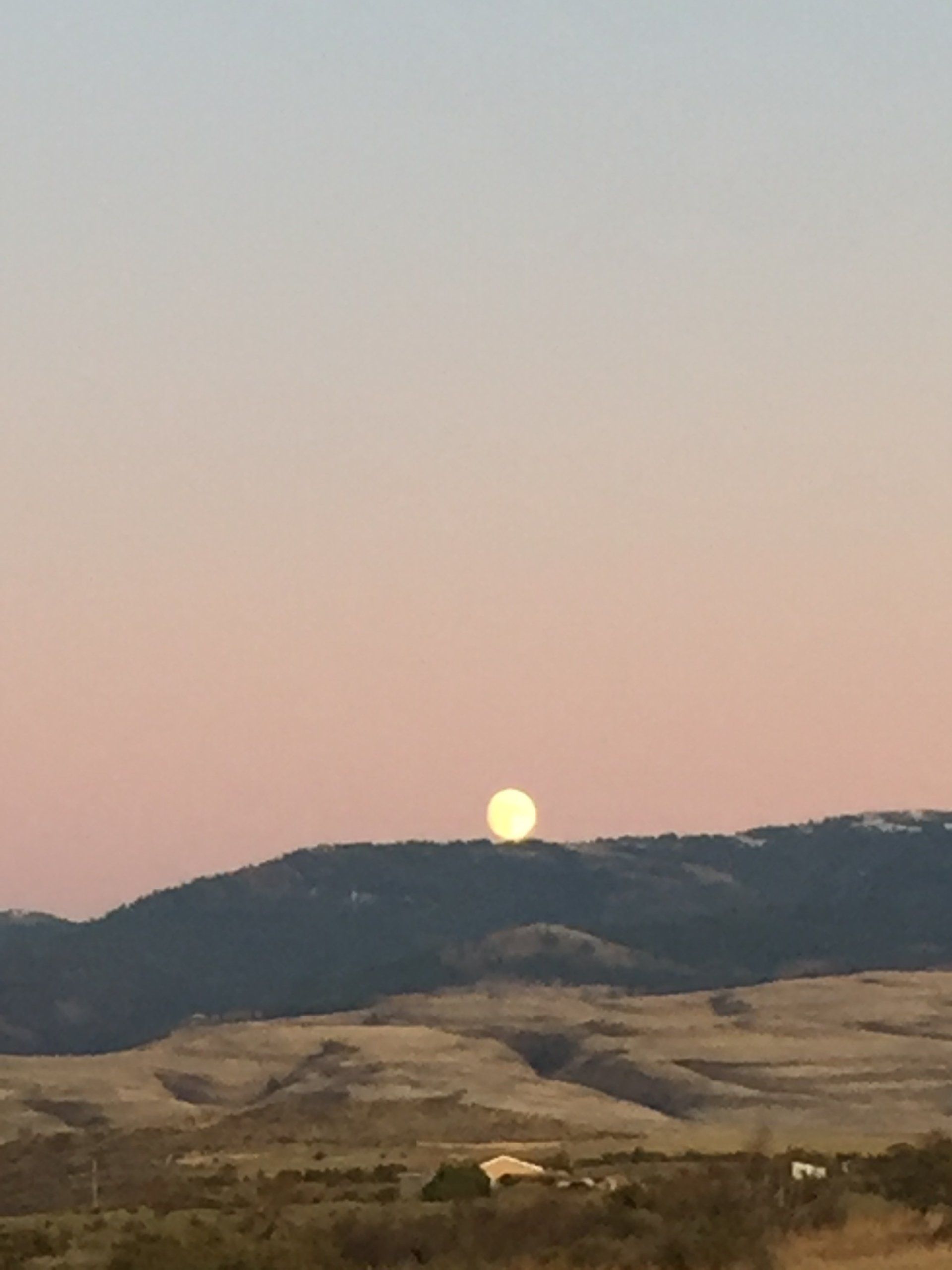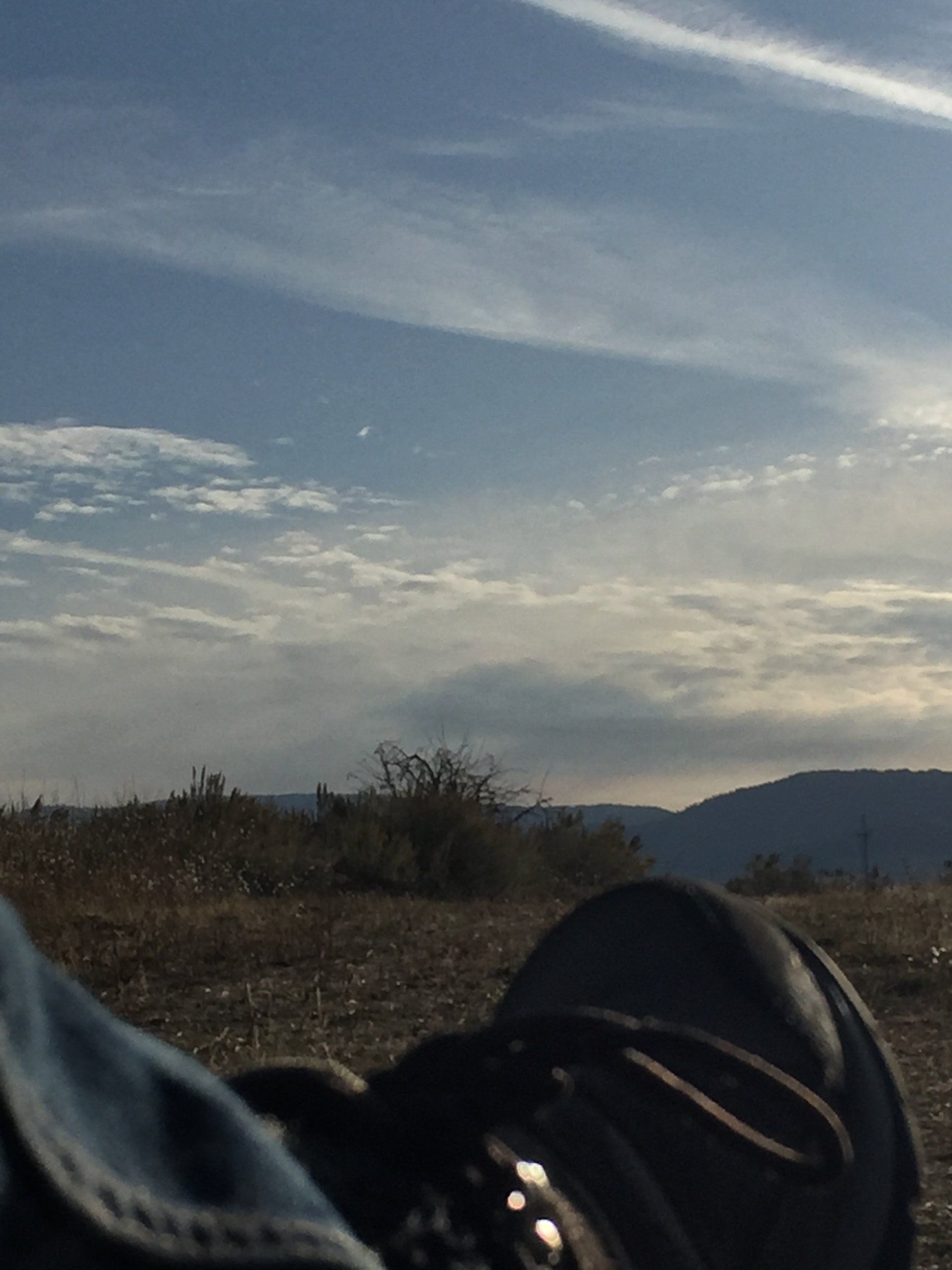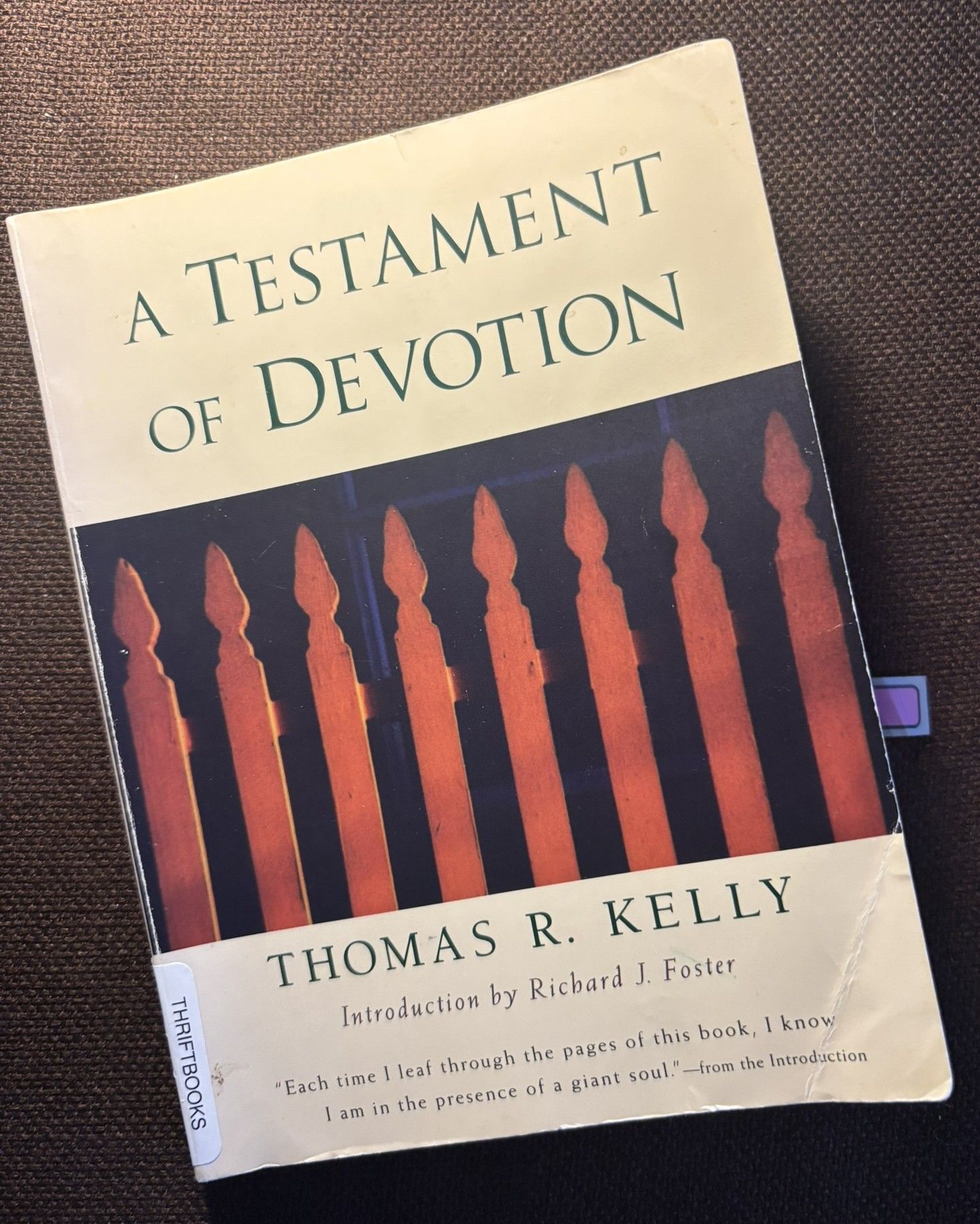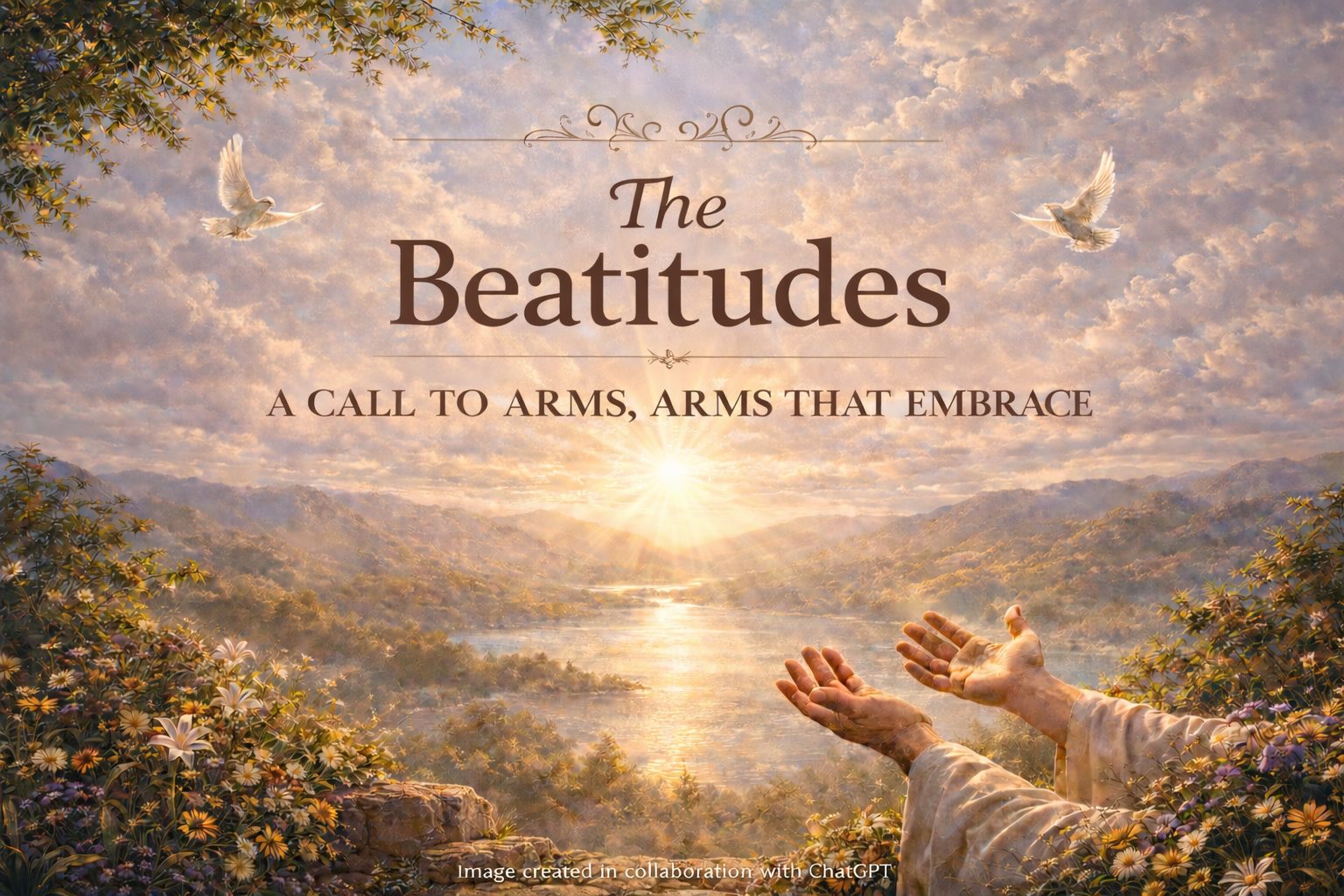Blessings
To say "blessings" or not to say "blessings", that is the question
We had a
conversation in my Sunday School group, it’s been a few months ago, about using
the word “blessing”. As I recall, folks
were talking about using the word out (as in out in the secular world) in
day-to-day conversation, and that it might make people feel uncomfortable or that it
could be off-putting in some way. That makes a lot of sense. It has religious connotations and origins, after
all.
According to Merriam-Webster , “bless” is a verb which among its definitions means “to hallow or consecrate by religious rite or word”, “to invoke divine care”; “to praise or glorify”; “to confer prosperity or happiness” (as in “God blessed us with four children”); or “endow, favor” (as in “blessed with athletic ability”).
Again, Merriam-Webster helps us with the noun, “blessing”, which among its definitions means “the act or words of one that blesses” (as in “say the blessing over wine” or a “priestly blessing”; “approval, encouragement” (as in “asked her parents for their blessing before he proposed”); “a thing conducive to happiness or welfare” (“My daughter is a blessing to me in my old age. Their absence turned out to be a blessing in disguise. Count your blessings”); or “grace said at a meal” (“said the blessing over dinner”).
The Oxford English Dictionary has more. For example, here is the original meaning (probably, the O.E.D. says) of the word “bless”:
To make ‘sacred’ or ‘holy’ with blood; to consecrate by some sacrificial rite which was held to render a thing inviolable from profane use of men and evil influence of men or demons. (The streaking of the lintel and doorposts with blood, Exodus xii. 23, to mark them as holy to the Lord and inviolable by the destroying angel, was apparently the kind of idea expressed by blóedsian in pre-christian times. Cf. also the history of the Latin words consecrāre and sacrificium.) Hence, in historical use:
I. To make sacred, consecrate, hallow.
This original meaning of “bless” I imagine would be
fairly off-putting for the average conversation.
“Beatitude”, on the other hand, commonly
associated with THE beatitudes in the Sermon on the Mount, means (again, from
the O.E.D.),
"Supreme blessedness or happiness”, or “A declaration or ascription of special blessedness; esp. (in plural) those pronounced by Christ in the Sermon on the Mount.”
All of that sounds much more complicated than it needs to be, for me anyway, in daily life. I like the word “blessing”, just as I like the idea of “unearned gifts”. I feel fortunate that I have air to breathe, beautiful sunsets to experience, fall colors to observe, and the Grand Tetons close by. They are blessings, gifts, boons, I have which I did nothing to deserve, yet they are all around me. Whether these come our ways simply through the simple, natural process of evolution or, in addition to that, divine beneficence is open to individual interpretation. Regardless, I feel blessed, fortunate, lucky, gifted – pick the word that works best for you – and infinitely grateful.
I have never felt comfortable ending conversations or letters or emails or any of that with “Blessings” until I started to hang out with religious people, many of whom do it all the time. It has always felt so contrived and "religious". I’ve spent a lot of time with Catholics in recent years and I see it from them all the time. Also, ministers from our church or others deeply engaged in religious work are likely to send me a note ending with "Blessings". It’s interesting to me – about myself – that I feel more and more comfortable saying “Peace and Blessings”, these days than I ever did before. And these days, receiving blessings from anyone is something I appreciate deeply.
We are reading the book, A Soul’s Slow Ripening: 12 Celtic Practices for Seeking the Sacred, by Christine Valters Paintner, over several weeks at church. This week we’ll be talking about practice #4, The Practice of Blessing Each Moment.
Paintner says blessing is “acknowledging the gifts and graces already present and entering into partnership with the divine”, and “to live life from a place of gratitude, to offer thanks and honor for everything that we have, taking nothing for granted”. This is “giving loving attention to daily life” and “all the mundane activities of the day become opportunities to witness grace at work” (p. 39).
This is one of my favorite practices in the book, for a couple of reasons. The first is that both these ideas – living life from a place of gratitude, and giving loving attention to daily life (or, to cut the cloth even more carefully, to each present moment) – are personal practices I have been working on for a while. Reading about this practice reaffirmed that I’m headed in the right direction.
Second, this is a practice with something concrete that I (and you) can do. It’s a practical practice if you will, and much easier conceptually, for me anyway, than to think about the practice of dreaming, which is Paintner’s third practice.
Of course, all that means is that it is easy to understand. Not that it is easy to do. “At the heart of this practice and way of life,” Paintner says, “is paying mindful attention to our lives….all it takes is a few minutes spent pausing, being, and reflecting to rekindle my devotion to the moment”. And, “[the desert fathers and mothers] knew that the soul thrives in slowness and that the divine spark of life reveals itself when we simply pay attention” (p. 40).
And this is the connection to where this essay started. “When we pay attention, we remember to bless; we remember gifts given” (p. 40).
How often do I take the day, the hour, and the moment for granted, forgetting the great gifts that I have? Too often I forget the blessing, the gift, of the present moment. As Paintner says so well:
“One of the beautiful practices of the Celtic tradition is blessing the world, blessing each and every encounter and experience, the most ordinary moment. I am reminded as well of the beautiful Jewish practice of blessing all the elements of our days. In these worldviews, each act becomes worthy of bless. Gratitude is offered for the gift of every moment—when waking, crossing a threshold, eating a meal, lighting candles. The Talmud calls for one hundred blessings each day. This act of blessing is really a special way of paying attention. It is mindfulness infused with gratitude. It is a moment of remembering wonder as our primary response to the world. It is an act of consecrating time” (pp. 48-49).
Recognizing these gifts, working to live more a life of gratitude than entitlement, one appreciative of abundance rather than upset about lack, makes it so much easier to say “Blessings” these days.
References:
Dictionary, O. E. "bless, v.1" : Oxford University Press.
Dictionary, O. E. "beatitude, n." : Oxford University Press.
Merriam Webster online, “Bless”, https://www.merriam-webster.com/dictionary/bless , retrieved 10-19-19.
Merriam-Webster online, “Blessing”, https://www.merriam-webster.com/dictionary/blessing , retrieved 10-19-19.
Paintner, C. V. (2018). The soul's slow ripening: 12 Celtic practices for seeking the sacred (pp. 1 online resource).













